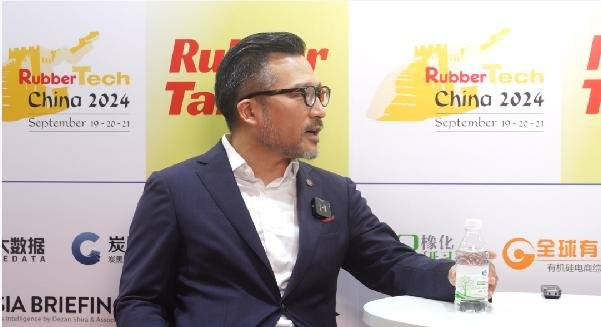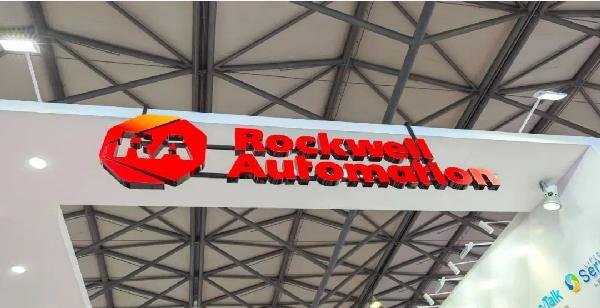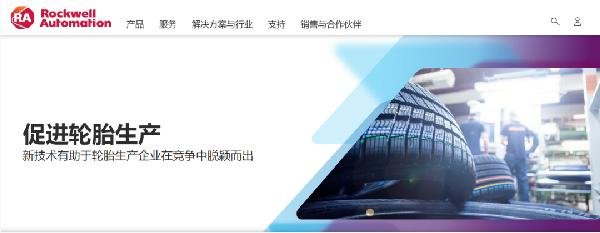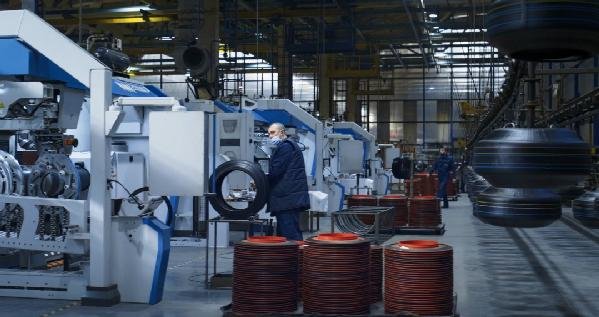Recently, the 22nd China International Rubber Technology Expo was held in Shanghai.
At the event, Shi An, President of Rockwell Automation (China) Co., Ltd., was interviewed by Tire World Network.
With over 120 years of history, Rockwell Automation is a global leader in the fields of industrial automation, informatization, and digital transformation. The company has also been deeply involved in the tire industry for over 40 years, actively empowering industry upgrades.
Solving Industry Challenges – Breaking Through the Four Walls of the Factory
"Chinese tires can only break out of the 'four walls' of the factory to overcome the issue of homogenization," Shi An pointed out during the conversation.

He believes that overcapacity, homogenization, and weak demand are the main challenges currently faced by the Chinese tire industry. To break the deadlock, the industry not only needs automation upgrades but also requires the entire industrial chain to be interconnected.
Taking tire companies in the Shandong region as an example, he emphasized that businesses should leverage digital technologies to build differentiated competitive advantages. Additionally, utilizing big data to analyze the upstream and downstream ecosystems is crucial for minimizing overcapacity.
In the Chinese tire industry, Rockwell Automation plays a central role as the leader of the productive service industry chain. The company offers products, services, and solutions throughout the entire lifecycle, all aimed at achieving the above goals and driving the transformation and upgrade of the tire industry.

Empowering Sustainable Development – Creating a Green Demonstration Platform
In addition to automation upgrades, Shi An also highlighted the "3060 goals" proposed by the Chinese government.
He stated that tires are a high-energy-consuming industry, especially in the upstream supply chain. The key to achieving the country’s carbon reduction goals lies in replacing energy sources at the industry's upstream level.

Rockwell Automation is committed to empowering the entire industry chain, promoting the green transformation of nearby supply chains.
Currently, the company is collaborating with Shanghai Climate Week to create the "Climate Lighthouse" green demonstration platform. Leading companies such as Zhongce, Sailun, and Guiren have showcased their carbon reduction achievements through this platform.
"We are continuously guiding tire companies to join this initiative, and it's a win-win situation," Shi An said.
Gathering Cross-Industry Partners – Establishing Global Standards
When talking about the wave of Chinese tire companies going global, Shi An first mentioned the company’s own development history.
He said that Rockwell entered China through a global strategy, and is now “giving back” to the industry. They are well-versed in this field and understand that while "going global" may seem easy, it is not that simple.

Shi An pointed out that "going global" is a localization process, and the goal is to establish global standards. In this process, how to gather various forces and form a cross-industry ecosystem is crucial.
"Through cross-industry cooperation, tire manufacturers can elevate their customer base, which will change the premium space and negotiation leverage," Shi An said.
In his view, there are four benefits to cross-industry collaboration: First, the development of blue ocean markets; second, the extension of the industrial chain; third, the elevation of brands; and fourth, transforming non-chain leaders into chain leaders.
These are all paths that Chinese tires must follow to step onto the global stage.



